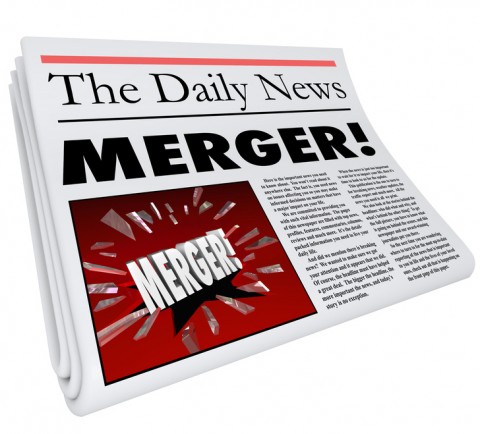Directive Blogs
AT&T To Purchase Time Warner, Raising Flags with Regulators
In a historically large media merge, AT&T and Time Warner have come to an agreement in a proposal that has been discussed since as early as August 2016. The wireless provider intends to purchase Time Warner’s media holdings for a whopping total of $85.4 billion in cash and stocks, assuming the merger passes the inspection of antitrust regulators.
It is important to note that Time Warner and Time Warner Cable are two different entities, Time Warner Cable provides video, high-speed data, and phone services; while Time Warner, develops, creates, packages, and delivers content.
This potentially revolutionary arrangement could very easily influence the entirety of both industries to follow suit, causing a change in how content is created and delivered to consumers. Previously, a content creator would license their creation to distributors, which allowed programs that were in high demand to carry heftier fees for the distributors. However, this agreement creates a multi-platform delivery system for AT&T to capitalize upon as they share content that they now also own. This has created some concerns from a bipartisan selection of United States government officials.
In a rare, if not unprecedented display of agreement, president-elect Donald Trump, Democratic Senator Al Franken, Democratic Virginian Governor Tim Kaine, and Independent Vermont Senator Bernie Sanders have all spoken out against the deal, citing concerns of power consolidation in the media and of a lack of options driving up costs for consumers. Sanders called upon the current administration to forbid the deal, while Trump has previously promised to break up the union, as well as the current Comcast/NBC deal.
The concerns seem to have some validity, especially when you consider that this deal gives AT&T ownership of the Harry Potter film series, CNN, NBA on TNT, MLB on TBS, HBO and all of its content--including Game of Thrones and Sesame Street, as well as all films produced by DC Entertainment. This ownership of content eliminates the worry of a program-carrying fee causing an increased price in service contracts, and could perhaps see an end to data limits for customers of AT&T smartphone and Internet. However, there is little to stop AT&T from creating or increasing premium prices for their new possessions as a way to absorb greater profits. After all, if their service is the only place to find highly demanded media, AT&T could presumably charge whatever they wanted without needing to worry too much about losing customers.
This is why entities like the Federal Communications Commission will spend the better part of a year analyzing the deal before giving their approval. As said by the CEO of the American Cable Association, Matthew Polka, “As the FCC has found in past mergers, combining valuable content with pay-TV distribution causes harm to consumers and competition in the pay-TV market.”
Or, as Policy Director Matt Wood of Free Press (a consumer advocacy group) put it, “Any time you hear media executives talking about synergies, throwing around the business-babble that always accompanies these rumors, you know it’s time to grab your wallet and hang on tight.”
AT&T CEO Randall Stephenson feels confident about the deal’s health, citing the nature of the arrangement as a defense against antitrust concerns. Since AT&T is a distributor, seeking to buy a content supplier in Time Warner, the deal falls under vertical integration (when one entity controls all points in a supply chain), while the laws in place today focus more on competition being reduced through horizontal integration (where one entity controls all of the companies in an industry). As Stephenson said in defense of the arrangement, “No competitor will be removed from the marketplace with this deal.”
However, concerns are numerous and poignant. While net neutrality rules forbid AT&T from reducing the bandwidth provided to access a competitor’s content, newer zero-ratings programs could give them a workaround to exploit.
Zero-ratings programs like AT&T’s Sponsored Data allow customers to access certain content, such as HBONOW, without an effect on their data limits. While critics may be silenced by such programs adhering to the stringent legal standards that have been put into place, AT&T will need to watch their step to avoid alerting watchful regulators to an opportunity to restrict them.
What does all this mean for your business? That depends on the effect, if any, that still bleeds over into how Time Warner Cable operates. Seeing as TWC is the entity that handles enterprise hosting through Time Warner Cable Business Class, the split between the two branches should prevent any significant changes to those customers. However, this arrangement is already poised to create changes that resonate across the entire industry as other companies follow suit. It could very well be that these actions may ultimately influence the price of online services and communications solutions, two key considerations that could change how your business is budgeted--for better or worse. As of yet, there are few guarantees that may be made until government regulators give us a clearer view of where we stand.
Regardless, this is an important topic to consider, as it shows how easily a core component to a business may be potentially changed by the dealings of a larger provider.



Comments